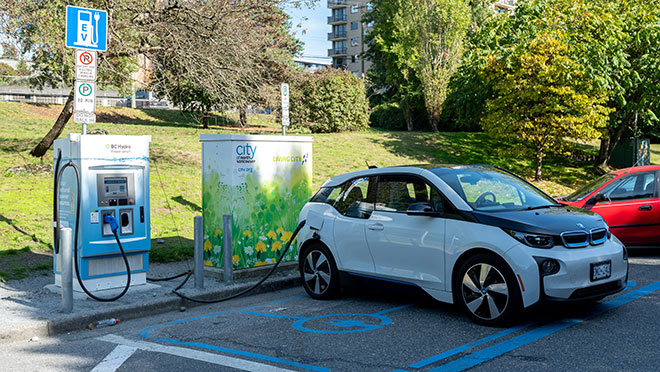Let’s talk about electrification

Clean electricity in B.C. means an opportunity to dramatically cut emissions
There's been a lot of discussion about electrification in B.C. over the last six months. At it's core, it's a very simple concept: reviewing equipment and processes that are typically powered by fossil fuels to decide two things:
- What can easily be changed to run on green electricity?
- What needs some strategic planning and additional investment?
However, for B.C.'s industrial community, electrification requires considering a wide range of variable factors, including opportunities for productivity gains, contributions to product quality and noise reduction within production facilities. Other considerations can include finance, location, transportation and industry-specific requirements. Businesses are also aware that for years, BC Hydro has actually been encouraging them to use less electricity. So is electrification a huge about-turn? "Not at all," says Dave Hargreaves, Senior Manager, Industrial Marketing, Conservation and Energy Management. "At BC Hydro we want to maximize the use of our clean electricity to meet the province's power needs, while supporting our customers to use the least amount of electricity possible to meet their needs. We all need to drastically reduce our carbon emissions. And in BC, electrification will be an effective way to do this."
How might electrification help your business?
Depending on your business, electrification can have all kinds of positive effects, such as:
- Financial savings. This is the biggest obvious benefit. While electrification will require up-front investment, there are many applications where the operations and maintenance savings are significant and the financial picture is very positive. And for some applications, there are different incentives and subsidies to help with the upfront capital investment.
- Quieter equipment. Electric motors run much quieter than gas and diesel powered engines. So your facility and vehicles will almost certainly be much quieter than they are today.
- Triple bottom line. Many businesses actively want to be more sustainable because it's good for business as well as being good for the planet. Low carbon electrification can help your triple bottom line.
"I think sometimes industry gets painted a little bit unfairly," says Hargreaves. "The perception can be that it's all bottom line driven, but there's social licence as well. We certainly have customers who talk about reporting to their shareholders and meeting their corporate social responsibility obligations."
The other reason to start thinking about electrification for your business as soon as you can is because over the next 12 years, the B.C. Government's CleanBC plan will likely require it. By 2030, along with many other transportation and construction initiatives, the goal is to lower industrial emissions and pollution, reducing carbon pollution by 8.4 Mt (megatonnes).
What could this look like for your business?
For many businesses, the first electrification quick-win to explore is transportation because of the cost savings. But there are undoubtedly many other areas ripe for change. Hargreaves offers some tips on how to find them: "It's really the same 3 things we use to help customers find areas for saving electricity. First, identify the opportunities by thoroughly examining your facility, the equipment you have and how it gets used. Then, investigate what the business case for change might be, evaluating the upfront cost, the long-term cost and any available incentives. And finally, when you've got a plan, it's time to find the smartest way to implement."
Where can you get more information?
There are many places to begin your research into the benefits that electrification could bring to your business. "CleanBC is a good start point," says Hargreaves, "and SUVI is the place to look for specific electric vehicle information. The government is running programs where they've got incentives to support all types of fleet conversion and forklifts."
BC Hydro is keen to support our customers— especially our industrial customers who would like to investigate and implement low carbon electrification opportunities. So if you have any thoughts or questions, reach out to your Key Account Manager or Regional Energy Manager and let them know any thoughts, ideas, or questions that come up.
Not sure who to contact? Email the Business Helpdesk, or call us at 1 866 522 4713.